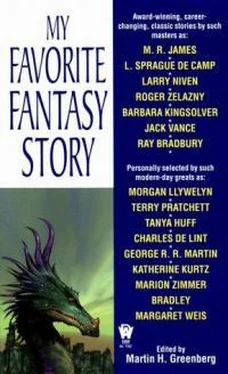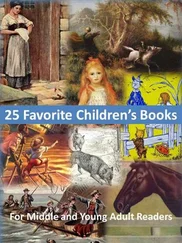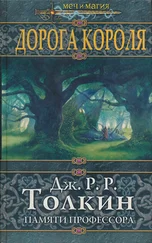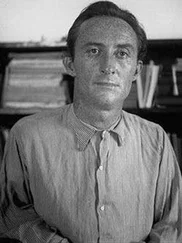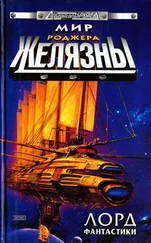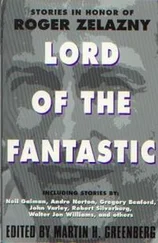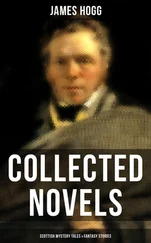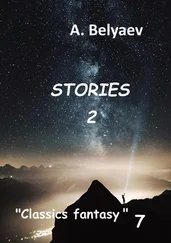Мартин Гринберг - My Favorite Fantasy Story
Здесь есть возможность читать онлайн «Мартин Гринберг - My Favorite Fantasy Story» весь текст электронной книги совершенно бесплатно (целиком полную версию без сокращений). В некоторых случаях можно слушать аудио, скачать через торрент в формате fb2 и присутствует краткое содержание. Жанр: Фэнтези, на английском языке. Описание произведения, (предисловие) а так же отзывы посетителей доступны на портале библиотеки ЛибКат.
- Название:My Favorite Fantasy Story
- Автор:
- Жанр:
- Год:неизвестен
- ISBN:нет данных
- Рейтинг книги:4 / 5. Голосов: 1
-
Избранное:Добавить в избранное
- Отзывы:
-
Ваша оценка:
- 80
- 1
- 2
- 3
- 4
- 5
My Favorite Fantasy Story: краткое содержание, описание и аннотация
Предлагаем к чтению аннотацию, описание, краткое содержание или предисловие (зависит от того, что написал сам автор книги «My Favorite Fantasy Story»). Если вы не нашли необходимую информацию о книге — напишите в комментариях, мы постараемся отыскать её.
My Favorite Fantasy Story — читать онлайн бесплатно полную книгу (весь текст) целиком
Ниже представлен текст книги, разбитый по страницам. Система сохранения места последней прочитанной страницы, позволяет с удобством читать онлайн бесплатно книгу «My Favorite Fantasy Story», без необходимости каждый раз заново искать на чём Вы остановились. Поставьте закладку, и сможете в любой момент перейти на страницу, на которой закончили чтение.
Интервал:
Закладка:
INTRODUCTION
As soon as mankind began to tell stories, the concept of fantasy was not far behind. From the ancient myths and legends every culture created to explain natural phenomena to the folktales, fairy tales, and our urban legends of today, our capacity for imagining the fantastic is exceeded only by our desire to find it. As the concept of fantasy literature evolved over the centuries, it has also become more refined, and now encompasses every type of fiction, from mainstream fantasy to epic high fantasy, from sword and sorcery to urban fantasy. But no matter how many types of fantasy literature exist today, the purpose behind the genre remains the same; to escape the real world and explore other places and events that exist only in the imagination.
Unlike science fiction, which required the fantastic to develop before it could even exist, the roots of fantasy fiction stretch back before the dawn of history. The first structured mythologies, of Mesopotamia and Egypt, pre-date the invention of the written word, as they appear already fully developed in the earliest of texts. The very first "novel" the Mesopotamian epic of Gilgamesh, elements of which probably date back before the fourth millennium BC in part relates the type of quest beloved of modern fantasy readers as the heartsick king of Uruk searches for the secret of eternal life.
In the second millennium BC, a group of people known as Indo-Europeans migrated from their homeland north of the Black Sea. Eventually this group took over most of Europe, part of the Middle East, and much of the Indian subcontinent, assimilating the local cultures into their own. From this mixture of languages and societies came what is generally believed to be one of the first creation myths, the Rig-Veda, in which Indra, the warrior god and leader of the Adityas, ancient children of the earth, does battle with Vritra, the great dragon and leader of the Danavas, the children of Danu the Restrainer. After many epic battles, Indra destroys Vritra with his thunderbolt, making the creation of our world possible. It is here that the important theme of warrior versus warrior, one concerned with protecting mankind, one concerned with destroying it, emerged.
When the Greeks rose to prominence in this second millennium, they took the best elements of the creation myths of all the indigenous populations and made them their own. Indra, the lightning god, evolved into Zeus, god of thunder and the heavens. The Indo-European god of the sun, named Mitra, became Apollo, and so on. In fact, Hera, Poseidon, and several other gods actually originated on the Indian continent, and were brought into the local Mediterranean cultures when the Indo-Europeans settled in those areas. Several minor gods, including Demeter, Aphrodite, Rhea, and others have their beginnings firmly established in the Mediterranean subcultures.
Although the Greeks had used written language in the second millennium BC, they did not start writing down their stories until the eighth century BC. Add to this the fact that each poet, playwright, or author interpreted the myths in a way most suitable to what they were writing, and the genealogy of Greek mythology becomes even more muddled. The poet Hesiod was the first to actually weave the dissimilar fragments of the Indo-European, Mediterranean, and Greek myths into a cohesive whole. He played a large part in creating the Greek pantheon we know today, chronicling their exploits and genealogy as real beings in his works Theogony. It is in his work that we find the myths of Uranus, who mates with Gaea, the earth, creating the Titans, including Cronos, who gives birth to the gods as we know them.
The epic poems of Homer, including the Iliad and the Odyssey, utilized the myths of the times symbolically in some of the first stories to use a connected narrative element and theme. Homer set the stage for a new, dynamic form of storytelling, solidifying the pantheon's place in history in the process.
The comedic playwright Aristophanes used fantasy in his play The Birds, written in 414 BC, which described how a Greek vagabond convinced the birds to build a utopian city in the sky, and eventually made the gods do his bidding. Other Greek playwrights used fantasy for satire and humor in their plays, and fantasy flourished as it never had before.
With the rise of the Roman Empire came an emphasis on a more practical pantheon. The Roman gods existed primarily for the use of the people, to be venerated on their particular festival days or at designated physical locations. However, the creation story of Rome, the tale of the brothers Romulus and Remus, as well as Virgil's Aeneid are excellent examples of the Roman fantasy stories, in which larger-than-life characters struggle against the forces of nature to achieve their goals.
The first English fantasy epic is the classic Northumbrian poem Beowulf, written down for the first time sometime during the eighth century. Again, this tale of the struggle of the greatest Geatish warrior against the almost elemental evil creature Grendel continues the warrior versus warrior myth, with Beowulf the protector saving the Danes from Grendel the destroyer. The ninth-century poet Cynewulf wrote Andreas, often called the "Christian Beowulf," as well as "The Dream of the Rood," an imaginative poetic meditation that was precursor to the dream visions of the Middle Ages.
The next major step in the development of fantasy occurred in the twelfth century, when the Welsh cleric Geoffrey of Monmouth transformed a minor Celtic war chieftain into one of the greatest legendary figures in the English language, King Arthur. Originally published in Latin in the twelfth century, Monmouth's partly legendary History of the Kings of Britain was translated into French by historians Geoffrey Gaimar and Robert Wace of Jersey. The English priest Layamon then retold the tale in English in 1205 in his poem, The Brut, the first Anglicized version of the story of King Arthur. Again the theme of protector versus destroyer is set down, King Arthur versus Mordred, with the sorcerer Merlin in the middle.
In the fourteenth century, Geoffrey Chaucer advanced the fantasy story even further by incorporating legends and myths into his seminal Canterbury Tales. Among the stories of the various pilgrims traveling to Canterbury is the Pardoner's tale of three thieves who each meet Death personified in appropriate ways. One of the first to use the frame story device, Chaucer combined the myths and folktales of his time with archetypes of real people, making his work accessible to the common man.
The Elizabethan Age brought an explosion of literary fantasy to the forefront of public consciousness. Beginning with Christopher Marlowe's Doctor Faustus, perhaps the first deal-with-the-devil story in which the church has only a secondary role next to the tangled web that entangles the power-hungry doctor. At the same time, William Shakespeare was starting his meteoric rise to glory, with his historical, tragic, and comedic plays sweeping the imagination of England like no one had before him. Fantasy was a major element in several of his plays, in particular A Midsummer Night's Dream, The Tempest, and Macbeth, and he paved the way for the fantasists of the following centuries. Another important author of the time was Edmund Spenser, whose romantic masterpiece The Faerie Queene was dedicated to Queen Elizabeth.
The eighteenth century was a period when fantasy blossomed once again, beginning with Jonathan Swift's political satire Gulliver's Travels, and ending with William Blake's fiery rhetoric and powerful verses in Songs of Innocence, Songs of Experience, and The Marriage of Heaven and Hell. By rejecting the standards of then-contemporary life and writing about his driving passions, Blake blazed a new trail for fantasy writers to follow. Horace Walpole wrote the precursor to the Gothic romance, The Castle of Otranto, in the latter half of the century.
Читать дальшеИнтервал:
Закладка:
Похожие книги на «My Favorite Fantasy Story»
Представляем Вашему вниманию похожие книги на «My Favorite Fantasy Story» списком для выбора. Мы отобрали схожую по названию и смыслу литературу в надежде предоставить читателям больше вариантов отыскать новые, интересные, ещё непрочитанные произведения.
Обсуждение, отзывы о книге «My Favorite Fantasy Story» и просто собственные мнения читателей. Оставьте ваши комментарии, напишите, что Вы думаете о произведении, его смысле или главных героях. Укажите что конкретно понравилось, а что нет, и почему Вы так считаете.
